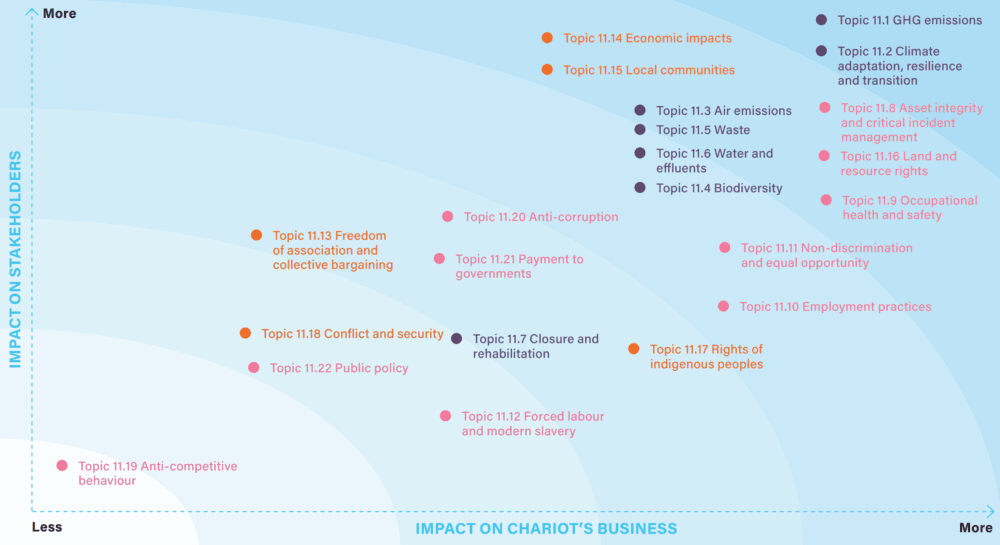Sustainability
OUR COMMITMENT TO SUSTAINABLE OPERATIONS
Robust management of environmental, social and governance (ESG) concerns are at the core of what we do and how we work. Chariot seeks to embed a responsible approach to ESG management throughout the business. This statement provides an outline of the policies in place that guide the Group and its employees when dealing with such concerns in the workplace.

Chariot adopts industry best practice through using the Equator Principles, IFC Performance Standards and the United Nations Sustainable Development Goals (“UN SDGs”) as benchmarks and guiding principles.
Two of the UN SDGs are particularly relevant to our business and underpin our strategy and our values:
Goal 7: Ensure access to affordable, reliable, sustainable modern energy for all – specifically around energy efficiency and advanced and cleaner fossil-fuel technology… expansion of infrastructure and upgrade technology for supplying modern and sustainable energy services for developing countries…in accordance with their respective programmes of support.
Goal 9: To build resilient infrastructure, promote inclusive and sustainable industrialisation and foster innovation – …raise industry’s share of employment and gross domestic product, in line with national circumstances… upgrade infrastructure and retrofit industries to make them sustainable with increased resource-use efficiency and greater adoption of clean and environmentally sound technologies and industry.
OPERATING RESPONSIBLY WITH A FOCUS ON CONTINUOUS IMPROVEMENT
We acknowledge the potential ESG impacts that our activities may have as we develop our projects. Our team is committed to proactively identifying and assessing issues that are important to our business and to our stakeholders. We manage these and their associated risks and seek to minimise the impacts of our activities as far as possible by putting robust frameworks and policies in place.
In addition, we are continuing to build our ESG capacity throughout the organisation, from site-level environmental and social specialists to experienced ESG managers, as well as the engagement of expert consultants to provide further advice and support.
Over the past year and in recognition of the importance of stakeholders, external impacts and risks Chariot has undertaken to update and review our Materiality Assessment in line with the Global Reporting Initiative (“GRI”) framework. Green house gas emissions and climate adaptation, resilience and transition emerge as the two most material issues for the company followed closely by safety and security considerations, land access and community benefits. These issues have been linked to the Sustainable Development Goals which will guide project development and implementation in the future.
The matrix below illustrates the relative weight conferred upon each of these issues set out in the GRI and will provide a basis which we will review and report on going forward.
Materiality Assessment
